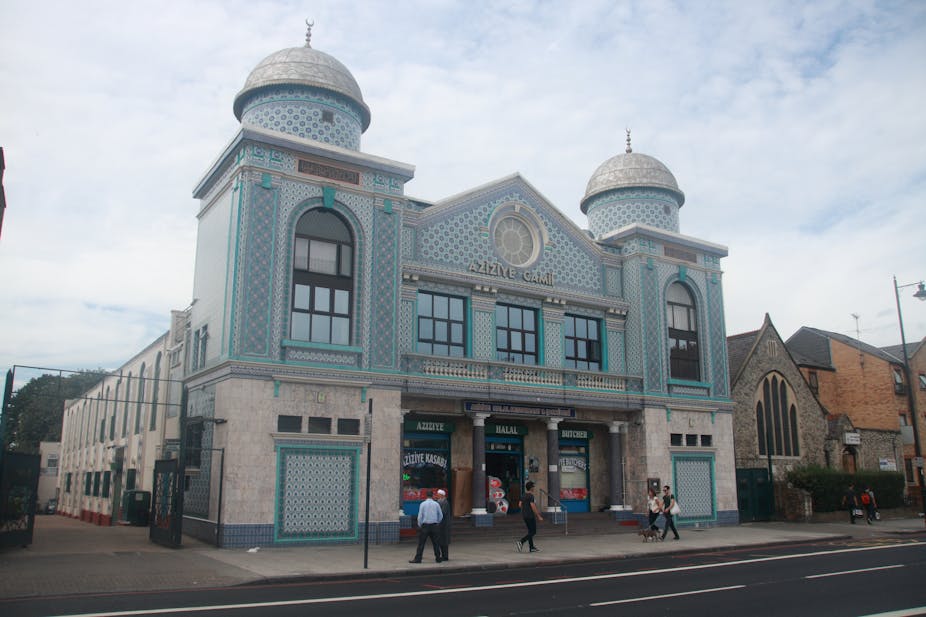Cases of extremist violence and sexual exploitation have caused significant anxiety in the UK in recent years and politicians are continually looking for ways to identify how these things happen and how they can be prevented.
A strange consensus seems to be building as a result – the key to solving these social problems is the Muslim “community” or, at least Muslim “communities”.
But the reality is that there is no such thing as a Muslim community. Followers of the faith come from cultures and countries all over the world, live in different parts of the the UK and subscribe to a wide spectrum of doctrines. Yet we seem to expect them to all know each other. Just as every person who has ever picked up a scarf pattern is not a member of the knitting community, nor is everyone who has read the Koran a member of the Muslim community.
When the UK government produced its strategy for preventing violent extremism in 2007, it was Muslim communities who were to provide local solutions to a national problem. The latest version of this strategy – published in 2013 – also pushes the idea of building community capacity and integrating Muslim communities into British society as integral to tackling radicalisation.
Similarly Nazir Afzal, the Crown Prosecution Service’s lead on child sexual abuse and a laudable champion of women’s rights, has stated in the wake of the Rotherham child abuse scandal that the problems of street-grooming can be addressed effectively within Muslim communities.
And even though female genital mutilation is largely unheard of among South Asian Muslims in the UK and was recently condemned as un-Islamic by the Muslim Council of Britain, some continue to frame it as a specifically Muslim problem that demands a community response.
Many faces
It is very easy to imagine multicultural Britain existing as a patchwork of groups, especially when thinking about minorities. It is tempting to readily accept the warm notion that Muslims collectively behave like characters in Eastenders, buzzing around Asian Albert Squares across the country, their families constantly interacting at the local mosque – their version of the Queen Vic. We would never accept similar notions of Christian communities or white communities – but when applied to minorities, the idea sounds authentic and credible.
Even Muslims can be quick to succumb to the romantic rhetoric. Within Islamic theology the concept of “ummah” is an idealised, unified global Muslim community made up of all the various ethnic, racial and cultural constituencies that follow the Islamic faith.
Look closer though, and the Muslim community is far more elusive. Until the Salman Rushdie fatwa affair, Muslims in the UK were not conceptualised by religious identity. Ethnic groups such as Pakistanis, Bangladeshis and Indians were the more legitimate conceptions of migrant communities. Even today, in most British towns and cities with Muslim populations, different ethnic groups will have their own mosques and religious institutions, and in some instances membership of those establishments remains exclusive to those specific ethnic groups.
Look closer still and other divisions emerge: Indian Muslims who came directly to the UK and Indians who arrived via African colonies are often divided by class and have been known to fall out. Many Pakistanis from urban centres such as Karachi and Islamabad are quick to distinguish themselves from the usually poorer, supposedly “less educated” Mirpuri populations from Pakistan’s Kashmir region. Bangladeshis from the capital Dhaka and those from rural Sylhet have similarly failed to co-operate at times because of class and caste-based distinctions.
These distinctions can be made without even touching on the theological differences within Sunni Islam alone. Deobandis, Barelvis and Salafis all have their own take on religious doctrine.
All these layers mean that no representative organisation and no individual or group of clerics can claim to represent British Muslims. Muslims are no clearer about what their neighbours and co-religionists are up to than anyone else.
See no evil, believe no evil
As a researcher of Muslim issues I have lost count of the number of times Muslim interviewees have told me that radicalisation or sexual exploitation doesn’t exist within their “community”. It’s not a Muslim problem they might suggest, but a problem with “other” Muslim groups: “a Pakistani problem”, a “Mirpuri problem”, a “Salafi issue”.
While this dissociation at first seems like denial, it is usually voiced because the individuals in question have simply never met any fellow Muslims who might become radicalised, or who they suspect of sexual offences. They don’t see evidence of such problems in their neighbourhood and don’t realise that they are defined themselves as part of a “community” with which they may have no contact. It’s little wonder they often feel unduly stigmatised by the debate and react defensively.
There are of course Muslim community groups but that doesn’t mean such a thing as the Muslim community exists – at least in the sense that we perceive. Organisations that are run by Muslims function in much the same way as any community group. They service people in a particular geographical locations, whether it’s providing young people with after-school activities, or providing spaces of prayer for worshippers in mosques. Yet they may be oblivious to events beyond their remit, and out of touch with the lives of those beyond their immediate congregation.
To tackle extremism, misogyny and abuse we often need to tap into the specialist knowledge that Muslim organisations can offer. But “communities” also have their limits. Muslim communities cannot and should not be seen as primarily responsible for fixing a vast array of social ills that arise from an complex array of social problems.

